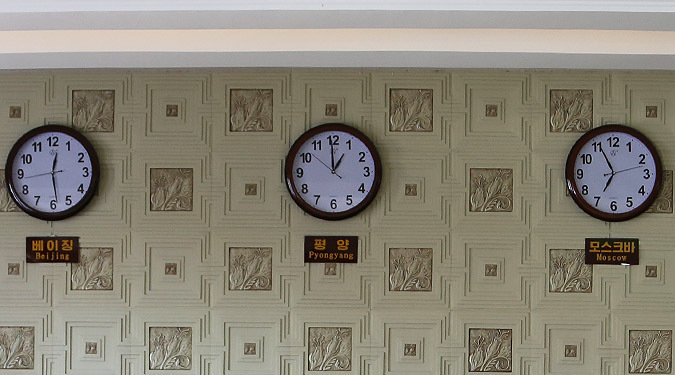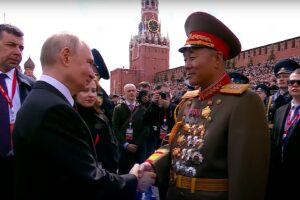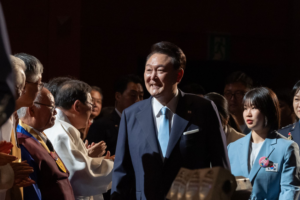Current circumstances offer a "perfect chance to start a peace-building process" with North Korea, Professor Georgy Toloraya told NK News on Tuesday, pointing to a potential short-term window of diplomatic opportunity.
Toloraya, who served in USSR and Russian Federation embassies in Pyongyang and Seoul multiple times, said the combination of North Korea's declared completion of its "state nuclear force" and a rumored delay in scheduled U.S.–South Korean military drills due to the upcoming Pyeongchang Winter Olympics could, together, "give room for dialogue."
Current circumstances offer a "perfect chance to start a peace-building process" with North Korea, Professor Georgy Toloraya told NK News on Tuesday, pointing to a potential short-term window of diplomatic opportunity.
Toloraya, who served in USSR and Russian Federation embassies in Pyongyang and Seoul multiple times, said the combination of North Korea's declared completion of its "state nuclear force" and a rumored delay in scheduled U.S.–South Korean military drills due to the upcoming Pyeongchang Winter Olympics could, together, "give room for dialogue."
Try unlimited access
Only $1 for four weeks
-
Unlimited access to all of NK News: reporting, investigations, analysis
-
Year-one discount if you continue past $1 trial period
-
The NK News Daily Update, an email newsletter to keep you in the loop
-
Searchable archive of all content, photo galleries, special columns
-
Contact NK News reporters with tips or requests for reporting
Get unlimited access to all NK News content, including original reporting, investigations, and analyses by our team of DPRK experts.
Subscribe
now
All major cards accepted. No commitments – you can cancel any time.










